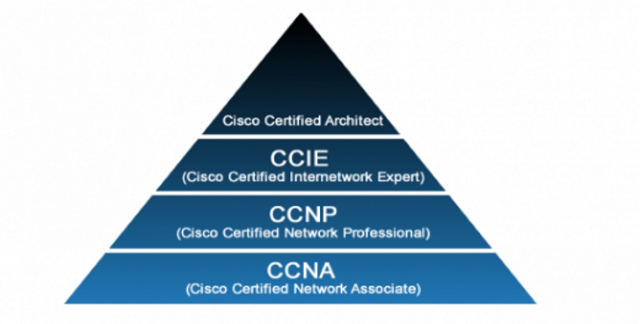Cisco certification provides students with the credentials to apply for jobs in the high-demand, yet highly-competitive networking industry. The company provides five levels of certification for networking professional hopefuls.
The Entry level provides students with a solid foundation in networking technology, combining hands-on training with theoretical knowledge. To compete in the global marketplace, students need critical thinking skills, problem-solving skills, and interpersonal skills, such as negotiation, leadership, and building teamwork. All of those areas are covered in this comprehensive program, starting at the beginning level.
The Associate level is a Cisco certification that starts with CCNA for troubleshooting, operations, and network installation, and with CCDA for those who want to learn to design networks.

Cisco Certification
An advanced certification, the Professional level develops students’ expertise in networking and in business skills. Students can specialize in various areas of training, such as routing and switching, security, collaboration, wireless, voice, and others. From there, they can further develop their career at the Expert level. With a Cisco Certified Internetwork Expert certification, students have access to some of the most prestigious high-demand jobs in the networking industry. Like the Professional level, this Cisco certification offers students the choice of specializing in various areas of expertise.
The highest certification that a student can receive from Cisco is the Architect level. As a Cisco Certified Architect, a student can design intricate networks for even the most demanding industry leaders, transforming business strategies by the use of cutting-edge technology.
There are a few restrictions on Cisco certification students, however. Minors under 13 years of age cannot obtain certification, while minors ages 14-17 can receive certification with the consent of their parents. No restrictions are imposed on students who are aged 18 and up.
Since the company’s headquarters is in the United States, students from nations that are currently under an embargo by the U.S. are not eligible to test for certification. Two types of identification (one must be issued by the government), a digital signature, and a digital photo are required to test. They must also sign a confidentiality agreement while registering, as well as sign off on the company’s other terms and conditions before testing.